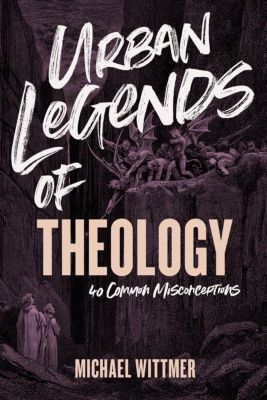
We can’t explicitly preach about pluralism each week, but we can enrich our church’s gospel soil so its weeds don’t take root.
By Michael Wittmer
Salvation may be at risk in the last place you would expect. By definition, evangelical Christians strongly agree that “only those who trust in Jesus Christ alone as their Savior receive God’s free gift of eternal salvation.” Yet according to the 2022 Lifeway Research State of Theology report, only 38% of Americans with evangelical beliefs disagree with the statement: “God accepts the worship of all religions, including Christianity, Judaism, and Islam.”
How can approximately 6 in 10 evangelicals believe only those who trust in Jesus alone can be saved and, at the same time, be uncertain about or even agree with the statement that God accepts all religions?
Their confusion is certainly aided by society’s religious pluralism. Most polite folks aim to avoid the topic of religion. And when it comes up, they shrug that any religion can save you as long as you are sincere. Evangelicals are nice people who like to be liked by other nice people, so we nicely slip into accepting the default position of polite society.
Addressing pluralism
What is a pastor to do? We must address this problem head-on, explaining to our congregations why Western culture is pluralistic. Without diving too deeply into the philosophical weeds, I teach my church about Kant’s separation of faith from knowledge. Kant taught that God is inherently unknowable, thereby creating space for everyone to believe whatever they want about him, or her, or it, or them. I explain that pluralism is essentially Hinduism. Pluralists are not high-minded idealists rising above the religious fray. Their religious view is not bigger than all the rest but is in fact one of them. In 2009, when Newsweek covered religion in America, it noted that “We are slowly becoming more like Hindus and less like traditional Christians.”
“If it is possible to be saved by any way other than Jesus, then Jesus and His death are unnecessary.” — @MikeWittmer Click To TweetI also preach why salvation comes only through faith in Jesus and why accepting other religions must inevitably push Jesus to the margins (Acts 4:12, Romans 10:13-17, 1 Thessalonians 2:16). If it is possible to be saved by any way other than Jesus, then Jesus and His death are unnecessary. We might think it is nice that Jesus died for us. But if we can be saved by Krishna or Allah, then we cannot say it is something we need. When it comes to salvation, it is Jesus or the field.
Enriching gospel soil
As important as this content is, we cannot preach every Sunday on the problem of religious pluralism. Meanwhile, our culture does not stop promoting it. Our people are being proselytized 24/7 by television, movies, the internet, social media, and their friends. We can hardly keep the pace. But all is not lost. We may not have space in our sermons to explicitly address pluralism each week. But we can enrich our church’s gospel soil so the weeds of pluralism do not take root. If we faithfully and passionately present the good news of Jesus, religious pluralism will strike our people as obviously implausible.
We nourish our soil in two ways, by emphasizing what we are saved from and who we are saved to. The mantra of religious pluralism, “Any religion can save you as long as you are sincere,” seems plausible to those who have forgotten what we are saved from.
“If the core problem we present is anything less than sin, death, and hell, we are giving our congregations permission to become pluralists.” — @MikeWittmer Click To TweetIf a visitor sat through one of your worship services, what would he conclude is the problem Jesus solves? If the main issue we address is stress, anxiety, depression, loneliness, marital conflict, parenting, or self-discipline, we should not be surprised when he assumes other religions work just as well. After all, Buddhist techniques are known to calm and center anxious souls, and Muslim children are often respectful and obedient. If the core problem we present is anything less than sin, death, and hell, we are giving our congregations permission to become pluralists.
Preaching the truth
I have never preached a fire and brimstone sermon, but I mention hell most weeks. I do this because Jesus did. No one in the Bible talked about hell more than Jesus. He described hell as a place of unimaginable torment and said it was worth mutilating your body to avoid going there (Luke 16:19-31; Matthew 5:29-30).
I talk about hell because Jesus is the only solution to sin, death, and hell. Why settle for small talk when we have the only answer to life’s large and insurmountable problems? I talk about it because I will give an account to the Lord Jesus for my ministry. And I hope to say I styled my ministry after Him and declared all that the Bible said without holding back. I talk about hell because it is condescending to think my congregation cannot handle the truth. I respect them and choose to speak to them as adults.
According to the State of Theology report, an increasing number of American adults believe in hell. In 2018 54% of Americans agreed that “Hell is a real place where certain people will be punished forever.” That number rose to 56% in 2020 and 59% in 2022. Preachers who warn about hell are in the mainstream—not only among evangelicals but also the broader culture.
Celebrating Jesus
Pastors prevent pluralism from taking root by preaching not only what we have been saved from but also who we are saved to. If a visitor sat through one of your worship services, what would she conclude is the answer to the problem you presented? Is the solution forgiveness? Self-discipline? Patience? Vulnerability? Contentment? Gratitude? Honesty? These are all good things, but none of them require Jesus. Satan is pleased if we call our people to forgiveness in general, gratitude in general, or contentment in general. Satan has won if our solution is anything in general. But the gospel is not a general practice or principle. The gospel is a person. The gospel is Jesus. Full stop.
“Defeating pluralism is as simple as celebrating Jesus.” — @MikeWittmer Click To TweetIf our preaching boasts in Jesus, glories in Jesus, and urges all to rest in Jesus then, and only then, will pluralism seem laughably absurd. If Jesus is merely a means to an end—a friend who helps us exhale, cope with misfortune, or discover our true selves—then other friends and religious techniques might work just as well. But if Jesus is life itself, there is nowhere else to turn. Defeating pluralism is as simple as celebrating Jesus. Jesus’s closest friend testified, “The one who has the Son has life. The one who does not have the Son of God does not have life” (1 John 5:12, CSB). When our people believe this and know why it is true, they will not be content with anything less. Salvation will be saved, and can only be saved, by the Savior.
For permission to republish this article, contact Marissa Postell Sullivan.













